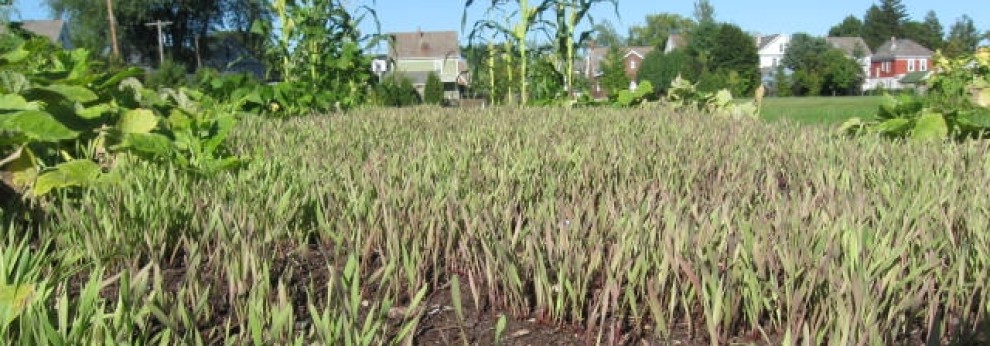 New research continues to strengthen the case for devoting school resources and time to connecting kids with greenery. One paper just published describes an experiment that found students better focused on instruction when they’re back in the indoor classroom after a lesson outside in a more natural setting. Even the sight of trees and natural landscape from classroom windows, according to the authors of another paper, appears to help students train their attention on school work better than views of barren spaces or classroom walls without windows.
New research continues to strengthen the case for devoting school resources and time to connecting kids with greenery. One paper just published describes an experiment that found students better focused on instruction when they’re back in the indoor classroom after a lesson outside in a more natural setting. Even the sight of trees and natural landscape from classroom windows, according to the authors of another paper, appears to help students train their attention on school work better than views of barren spaces or classroom walls without windows.
School administrators, architects and policy makers interested in building supportive environments for learning should take heed, say the authors of the second paper, who, like the authors of the first, are at the University of Illinois. We at the Vegetable Project would emphatically second that. The possibility that a measure of outdoor teaching and learning, or just window views of nature, could make a meaningful difference sounds worth serious consideration in schools filled with students who pose great challenges. So we are committed to supporting efforts to give these approaches a try – such as creation of an outdoor classroom at Myers Middle School and partnering with teachers to develop lesson plans around our gardens, exploration of schoolyards or just sitting in fresh air near plants.
“This study demonstrated that classroom views to green landscapes have significant positive impacts on recovery from stress and mental fatigue,” say the authors of “Impact of views to school landscapes on recovery from stress and mental fatigue” in the January edition Landscape and Urban Planning, an academic journal.
Of course, none of this is exactly new. Considerable research already builds a powerful case that exposure to nature is good for our health in ways that could support academic performance – by supporting cognitive functioning and motivation, reducing stress, sustaining attention and fostering social and emotional wellbeing and impulse control. The latest research, however, describes research focused especially on student comportment in the classroom and research using randomized controlled experimentation.
The paper “Do Lessons in Nature Boost Subsequent Classroom Engagement? Refueling Students in Flight?”, published in Frontiers in Psychology, describes a series of experiments with predominantly poor and minority third-grade classes where teachers taught a variety of subjects in a natural setting and in a traditional classroom, sometimes outdoors before indoors and sometimes indoors before outside. A variety of yardsticks were used to measure student engagement in the second class of the sequence, including recording how often teachers ‘redirected’ students to bring wandering minds back to task at hand.
“Classroom engagement was significantly better after lessons in nature than after their matched counterpart (in traditional classrooms) for four of the five measures developed for this study,” the paper’s authors report. “This nature advantage held across different teachers and held equally over the initial and final five weeks of lessons. And the magnitude of the advantage was large.”
Classroom disruptions will not come to a screeching halt the moment each beleaguered teacher takes students outside. But teachers who researchers observed typically made it almost twice as long before they needed put students back on track in the classes following outdoor work as those following classes in the regular classroom.
The Landscape and Urban Planning article describes an experiment in which students randomly assigned to classrooms without windows, with windows facing a built space and with windows that opened onto a green space, were monitored for biological indicators of stress and were given tests requiring focus and attention after completing fatiguing assignments. The students who took a break in rooms with a green view handily outperformed the two other groups.
These findings, reflecting nature’s amazing ability to calm and stimulate our senses simultaneously, suggest awfully exciting possibilities, especially in schools where the going has been toughest.
–Bill Stoneman



